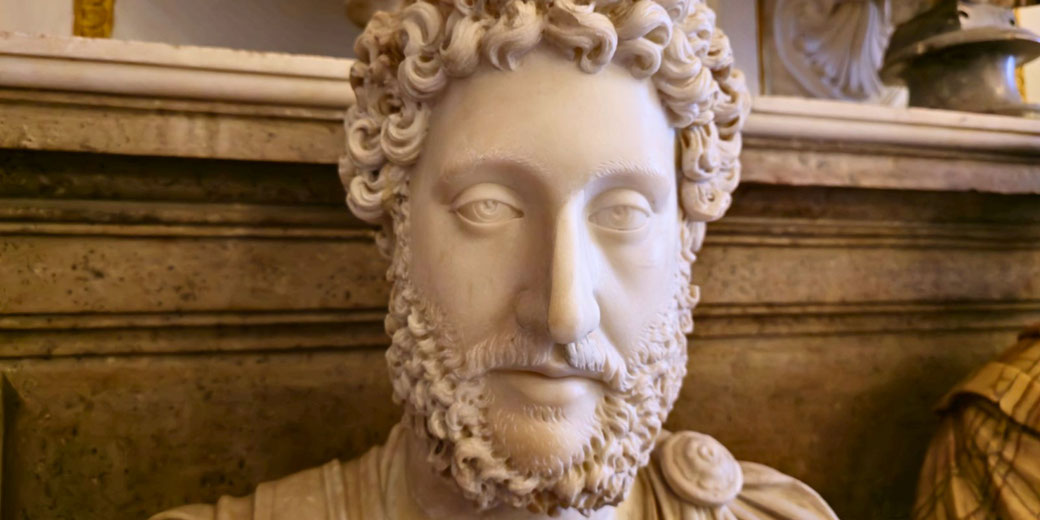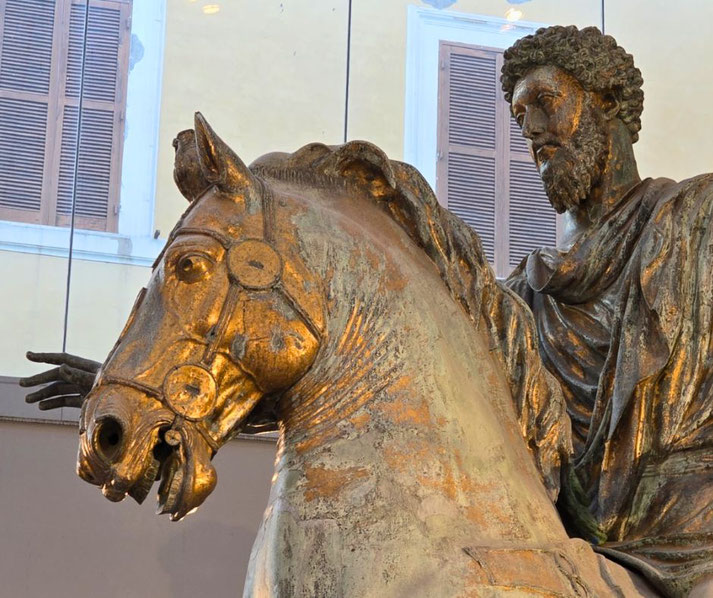Commodus: The Roman emperor that lived a life of passionate extremes

During the final decades of the second century AD, Rome faced a growing divide between its imperial court and the traditional authority of the Senate.
Into this climate stepped Commodus, who was the son of Marcus Aurelius, who inherited absolute power at the age of eighteen and used it to seek public praise instead of civic leadership.
Rather than following his father’s example of philosophical restraint and military duty, he turned the throne into a stage for spectacle that promoted his claim to godlike status and encouraged violent repression.
The warning signs during his childhood
From the moment of his birth on 31 August 161 AD, Commodus held a position unlike any of his predecessors, since he became the first Roman emperor born while his father ruled the empire.
As the son of Marcus Aurelius and Faustina the Younger, he received titles in childhood that confirmed him as the heir to imperial authority.
His twin brother was Titus Aurelius Fulvus, who had died in infancy, which further reinforced the singular focus placed on Commodus as the future ruler.
Under the supervision of Galen, who served as court physician, Commodus received medical care and physical training considered exceptional for a Roman prince.
Galen, whose medical writings influenced European medicine for centuries, later expressed doubts about Commodus’ temper.
Roman historians like Cassius Dio reported disturbing early behaviour, such as when he ordered a slave’s execution after a bath had not been properly heated.
According to these accounts, his sense that he deserved special treatment and his cruelty became clear well before he reached adolescence.
By fifteen, he had already held the consulship and joined his father on campaign along the Danube frontier, but his role remained ceremonial rather than strategic.
At that stage, Marcus Aurelius likely intended to ease his son into imperial responsibility, yet many officers doubted Commodus’ ability to command, since he showed little interest in military planning or discipline.

What did Commodus do when he became emperor?
After Marcus Aurelius had died at Vindobona on 17 March 180 AD, Commodus immediately abandoned the Danube campaigns and returned to Rome, where he assumed full power with no rivals or constraints.
He largely left military matters to his generals and turned his attention to court politics, grand entertainments, and symbolic gestures that showed his self-importance.
He made peace with the Marcomanni and other Germanic tribes his father had fought, which ended hopes of new conquests along the frontier.
Initially, he relied on the praetorian prefect Saoterus, a freedman from Nicomedia, who was seen as arrogant and who controlled access to the emperor.
Soon after, Commodus survived an attempted assassination planned by his sister Lucilla, whose motives remain uncertain but may have involved her loss of political standing or dissatisfaction with his rule.
In response, Commodus ordered her execution and began systematically removing from his court anyone suspected of disloyalty.
As trust in the Senate had collapsed, Commodus elevated another freedman, Cleander, to key positions and allowed him to regularly sell government jobs for bribes.
These offices included provincial governorships, military commands, and even Senate seats, which weakened the administration and enraged the elite.
Public confidence fell quickly and significantly, especially among the urban poor who had begun to experience food shortages and inflation.
Despite this unrest, Commodus focused on grand spectacles, theatrical performances, and ceremonies that promoted his divine image.
His failures as a military leader
At a time when Roman control past the Danube remained unstable, Commodus decided to end the wars his father had fought and signed treaties that left enemy tribes such as the Quadi and Iazyges along the frontier.
According to many generals, this decision prevented the formation of new provinces and wasted the gains achieved under Marcus Aurelius.
Instead of commanding armies in person, Commodus created the illusion of military greatness by frequently staging gladiatorial fights in the Colosseum.
Ancient sources claimed that he fought in 735 arena contests, often dressed as Hercules, and he used weapons that were tipped to reduce injury, though this number was likely an overstatement rather than accurate record-keeping.
As he performed, costumed as Hercules, he declared that Rome had entered a new age of peace under his protection.
However, soldiers resented the fact that their real sacrifices received little reward or recognition, while the emperor’s staged battles earned more public praise than actual victories.
He refused to lead troops into battle or inspect frontier defences, so Commodus allowed ambitious generals like Pescennius Niger and Clodius Albinus to build power in the provinces.
Eventually those figures would challenge central authority after his death, yet Commodus ignored the warning signs and continued to invest in his own legend instead of securing the empire’s borders.
Commodus' descent into a self-glorifying tyrant
Over time, Commodus grew more obsessed with presenting himself as the human incarnation of Hercules, and he used imperial funds to order statues and paintings that depicted him wearing lion skins and holding clubs.
One of the most famous examples is the bust preserved today in the Capitoline Museums in Rome, which shows him with the lion headdress and the apples of the Hesperides.
At his command, public spaces filled with images that supported this portrayal, and official inscriptions used godlike titles for him.

Soon, he renamed institutions such as the Senate and legions to include variations of his name, which meant that every public announcement celebrated his greatness.
On coinage, he appeared with muscular physiques and heroic postures, while phrases described him as the protector of peace and master of Rome’s destiny.
Although many Romans admired his performances in the arena, where he boasted of slaying hundreds of wild animals and defeating professional gladiators, others saw his actions as dangerous violations of imperial dignity.
Senators in particular widely feared his unpredictable behaviour, since he had already executed rivals for minor offences and tolerated no disagreement.
Commodus' megalomania
By the final years of his reign, Commodus had begun to treat Rome as his personal stage, where he treated religion as performance and subordinated both government and military command to his image.
He publicly demanded that citizens address him as “the Roman Hercules” and claimed to be the founder of a new age, where old customs no longer applied and the gods had placed him above all others.
To reinforce this identity, he reportedly changed the names of the calendar months to match his titles and insisted that legal documents include references to his godlike status, though some of these claims appear only in unreliable sources.
He even renamed Rome as Colonia Lucia Annia Commodiana, a decision that showed how completely he tried to merge the city’s identity with his own mythology.
Rather than restore stability, he used violence and spectacle to suppress dissent.
Those who mocked his actions or hesitated to praise his strength routinely faced exile, taking of property, or execution.
Officials began to fear that any display of honesty would cost them their lives, and even his allies worried that his behaviour had grown impossible to predict.
Why Commodus was assassinated
On 31 December 192 AD, the conspiracy against him succeeded after several failed attempts.
Marcia, who was his mistress, along with the chamberlain Eclectus and praetorian prefect Laetus, placed poison in his food when they discovered their names on an execution list.
After the poison had failed, they sent the wrestler Narcissus, who had trained with the emperor, to his private bath, where he strangled the emperor as he bathed alone.
Shortly after his death, the Senate formally declared him a public enemy, removed all his statues, and erased his name from public records under the punishment of damnatio memoriae.
Pertinax, who was a senior senator, was declared emperor the next day, but his rule lasted only three months before he too was murdered by the Praetorian Guard.
However, their efforts to restore order failed, since Commodus had left no stable succession plan and no clear institutional authority.
Within weeks the empire effectively collapsed into civil war, and the Year of the Five Emperors began.
Has Commodus been simply misunderstood?
Among surviving ancient writers, condemnation of Commodus appears nearly universal.
Cassius Dio, Herodian, and the author of the Historia Augusta presented him as a cruel, deluded tyrant who turned Rome into a circus and mocked the duties of leadership.
However, some modern scholars such as Anthony Birley have reconsidered these accounts, especially those that rely on rumours or implausible numbers.
In eastern provinces, where divine kingship had stronger precedent, his claim to divinity may have attracted genuine support.
His emphasis on public games and food handouts likely appealed to segments of the urban poor, for whom spectacle and immediate rewards mattered more than senatorial traditions.
Septimius Severus, who became emperor after the civil war, even restored Commodus’ reputation by declaring him a god and restoring his name on monuments, using this act to boost his authority with the military.
Even so, the damage to Rome’s military capability was considerable, reached into its finances, and eroded trust in political institutions and could not be dismissed as lies.
Commodus did not lose a war or face foreign invasion, yet he helped weaken every structure that supported Roman unity.
His failure to maintain trust among the Senate, army, and governors largely made any peaceful transfer of power impossible.
By turning his rule into a personal myth, he effectively cut the connection between emperor and empire, and the chaos that followed proved how far Rome had drifted from the example of Marcus Aurelius.
What do you need help with?
Download ready-to-use digital learning resources
Copyright © History Skills 2014-2025.
Contact via email
With the exception of links to external sites, some historical sources and extracts from specific publications, all content on this website is copyrighted by History Skills. This content may not be copied, republished or redistributed without written permission from the website creator. Please use the Contact page to obtain relevant permission.





